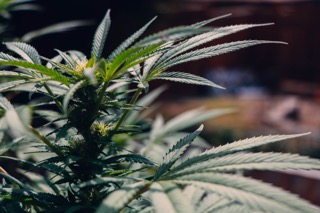Researchers from McGill University, Canada, and the Research Institute of the McGill University Health Centre have now pinpointed the effective dosage of the marijuana plant extract cannabidiol (CBD) to safely alleviate pain and anxiety.
CBD could serve as a reliable alternative to commonly used opioids for chronic pain from sciatica, diabetes, cancer, trauma and more.
This research comes at an important time, as 115 people die in the U.S. every day from opioid overdoses, and the world is in desperate need for a substitute.
“This research — I hope — will encourage more systematic medical cannabis research to help patients and doctors to make more evidence-based choices,” said Gabriella Gobbi, an associate professor of psychiatry at McGill University and also a researcher in the Brain Repair and Integrative Neuroscience (BRaIN) Program of the RI-MUHC.
Chemical makeup of cannabis
The two primary chemicals in cannabis are tetrahydrocannabinol (THC) and CBD. THC is responsible for most of the psychological, euphoric effects attached to marijuana. CBD contains pain and anxiety-relieving qualities, but does not have the same euphoric or addictive attributes of THC.
“This study shows how CBD acts with a completely different mechanism compared to its ‘cousin,’ THC, and also suggests that CBD should be used for pain associated with anxiety,” said Gobbi.
The study
The study comes in the wake of Canada legalizing recreational marijuana on October 17.
Although legal recreational cannabis is a relatively new phenomenon, its medical use has been considered for some time.
But a lot of uncertainties surround the treatment itself, such as doses, length of treatment, side effects and how cannabis interacts with other drugs, explained Gobbi.
The researchers set out to answer some of those questions.

They demonstrated that CBD acts through the mechanism that binds the receptors attached to anxiety (serotonin 5-HT1A) and pain (vanilloid TRPV1).
They were able to deduce the proper amount of CBD to consume so that consumers could alleviate their pain without feeling “high” or needing to go back for more.
“We found in animal models of chronic pain that low doses of CBD administered for seven days alleviate both pain and anxiety, two symptoms often associated in neuropathic or chronic pain,” Danilo De Gregorio, a post-doctoral fellow at McGill University in Gobbi’s laboratory and first author of the study, said in a statement.
The findings show that CBD can safely be used as medicine without the same side effects of THC.
A paper describing the full study is published in the journal PubMed.
What’s next?
This study can be used as a building block, but research cannot stop here.
“There is some data showing that CBD provides pain relief for humans but more robust clinical trials are needed,” Gobbi said in a statement.
In future studies, the researchers want to continue to answer the simple questions about CBD that are still unknown, explained Gobbi.



